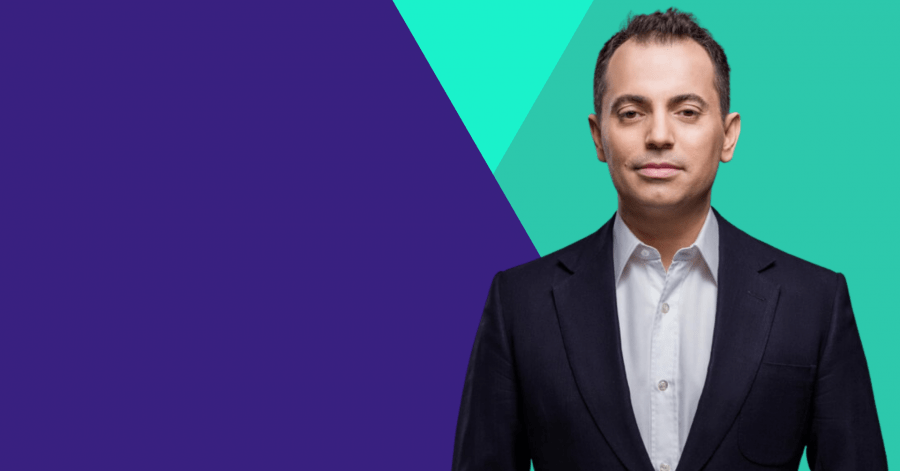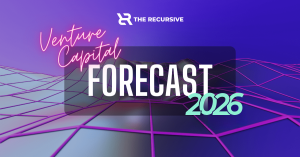On September 9, 2021, NGO and global brain gain network of Bulgarians Tuk-Tam is hosting its annual event – “Hive 2021”. In the course of a day, young people will get the chance to meet leading experts from all professional fields and connect with prospective employers, while expanding their knowledge base and enhancing their professional skills.
The Recursive will also be on the stage of Hive 2021 – our team will host the Hot Hive zone at the event where participants can meet some of the leading technological innovators of Bulgaria.
Today, we meet with one of the speakers at Tuk-Tam’s event – serial entrepreneur and investor Elvin Guri. He is the CEO of Empower Capital – a €21M fund that provides equity and quasi-equity funding to growing Bulgarian companies with the financial support of the European Investment Fund. The entrepreneur has over 15 years of entrepreneurial experience, including his position as an Associate Banker at the European Bank for Reconstruction and Development (EBRD), both in London and in Sofia. Later on, he co-founded JetFinance International, the biggest independent consumer finance lender in SEE, which was sold to BNP Paribas Personal Finance in July 2007. Elvin Guri was also the CEO of the private equity investment fund River Styxx Capital.
In our interview, we discuss the importance of Tuk-Tam’s initiative, the state of the Bulgarian ecosystem, the recent developments with Empower Capital, and the role of different actors in creating a sustainable entrepreneurial environment.
The Recursive: In your opinion, what is the impact of events like Tuk-Tam’s Hive and the Tuk-Tam community in general?
Elvin Guri: The big goal of the Tuk-Tam community is to keep the diaspora of young people close so that they can better assess and evaluate the opportunities Bulgaria has to offer. To me, this is far more interesting than the simple business side of getting together for a conference.
What I hope that the participants will get out of the upcoming event on September 9 will be first and foremost the conviction that there are great things they can do in Bulgaria.
This way, little by little, we’d be creating the kind of conditions in the country that can be increasingly conducive to setting up your own business here. An environment where one can take responsibility, find the right partners for solving problems and find the right type of financing.
And, God knows, the country really needs the engagement of the Tuk-Tam community. The events of the past year show very clearly how much there is to do in the country, and how young, energetic people can bring back hope and enthusiasm to society.
How can we engage young people to start their own business in Bulgaria?
Elvin Guri: Thanks to youth entrepreneurship organizations like Junior Achievement Bulgaria and quite a few other organizations, events, and media outlets like The Recursive, there has been a great change in the development of an entrepreneurial ecosystem in the country (while it is usually connected with technology firms, it does not necessarily have to be). The university accelerator Eleven established at AUBG [American University in Bulgaria – Ed. Note] is another good example – in general, there has been a fantastic amount of groundwork to get young people attracted to the idea that eventually they can start their own business. And get them in the mindset, they may fail on the first, second, or third attempt, but they should focus on learning from their mistakes and try again.
In this ecosystem, the venture capital funds and investors have a special responsibility to mentor, share their experience and know-how with the rest of the community. Today, we are sharing our experience with a bunch of young people. Tomorrow, some of these young people will go out and share their experiences with others. Then, I am confident that we can see a lot more examples like the Telerik “mafia” of former employees who then go on to start their successful businesses. It is this kind of network effect that we should seek to create and encourage.
It is not a responsibility that can or should be taken lightly. One of the reasons we don’t have many sophisticated large businesses capable of competing outside the borders of Bulgaria is that the majority of our businesses have been busy extracting value from our economy rather than building value. We need to move past this stage and create businesses that can add value to the economy. We need a more capable business elite. That’s why we need to start with encouraging youngsters to become more entrepreneurial-minded: not necessarily starting their own business, but developing the problem-solving mentality that is required in our society today, i.e. not waiting for someone else to address problems, but actively seeking to find solutions.
And it’s us who should do it. If we continue running away from the country, the only people that will eventually do business here are going to be the old oligarchs. So go abroad, learn, and build your experience. But consider coming back and doing something in your own country.
What other advice would you give to the next generation of entrepreneurs and business owners in Bulgaria?
Elvin Guri: I belong to a minority that believes one should first gather experience before venturing out to start your own business. I believe that successful business owners should have at least four or five years of experience behind their back. Sometimes you may have the business experience but you simply haven’t lived long enough to learn some most important life lessons.
What is the current status of the Empower Capital Fund?
Elvin Guri: Empower Capital is currently in its 7th year of operations and we’ve already returned more than half the money invested. We’re optimistic about returning the fund about two and half times. So, our current position gives us the luxury to continue adding value to our portfolio without the pressure of exiting.
When we started in 2014, we had a very difficult mandate – just 18 months to invest the first pot of money. Most funds have five at least 5 years. So, we concentrated on three main areas. First, make sure that we invest the money of our investors carefully. Second, create and consolidate a good team of people. And, third, experiment with a number of approaches in order to fine-tune our investment strategy and tactics.
We continue to remain relatively sector-agnostic, yet we like investments in up-and-coming industries. One of the lessons that we have learned is that excellent companies in industries that are on a downward spiral are going to be less successful than mediocre investments in fast-growing industries.








